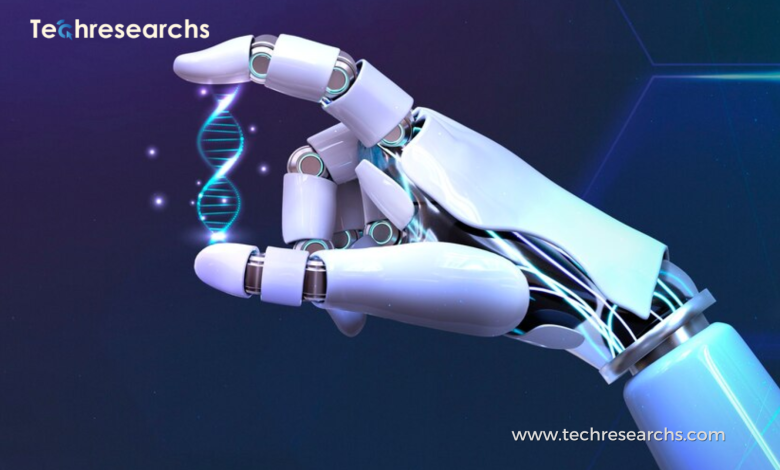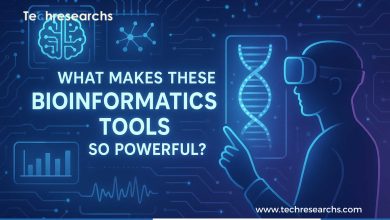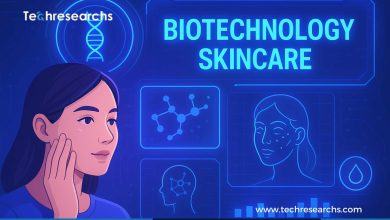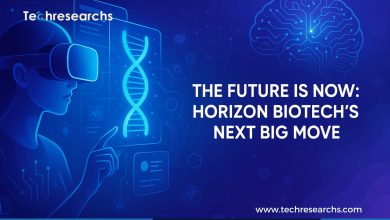Artificial Intelligence in Biotechnology: Unlocking New Possibilities

Artificial Intelligence (AI) is revolutionizing industries worldwide, and biotechnology is no exception. With its ability to analyse massive datasets, make predictions, and streamline processes, AI is unlocking a plethora of possibilities in this cutting-edge field. From drug discovery to precision agriculture, AI is transforming how we approach challenges and innovate in biotechnology.
What is Artificial Intelligence in Biotechnology?
AI in biotechnology refers to the integration of machine learning, data analysis, and automation to improve research, diagnostics, and production. This combination accelerates scientific discoveries while reducing costs and human error. With AI, researchers can analyse biological data faster, identify patterns, and create solutions for complex biological problems.
Applications of AI in Biotechnology
AI is reshaping biotechnology in numerous ways. Let’s explore some key applications:
- Drug Discovery and Development
Drug discovery is a time-consuming and expensive process. AI speeds up this process by identifying promising compounds, predicting their effects, and even designing new molecules. Companies like DeepMind and Exscientia use AI to streamline the development of medicines.
For example, AI can predict how a drug will interact with the human body, reducing the need for lengthy trial-and-error methods. - Precision Agriculture
AI-driven tools enable farmers to make informed decisions about crop management. Using data from sensors and drones, AI algorithms can analyse soil health, monitor crop growth, and predict pest infestations.
This approach reduces waste and ensures better crop yields, addressing food security challenges globally.
Additionally, AI aids in optimizing resource use, such as water and fertilizers, making agriculture more sustainable. - Gene Editing and Synthetic Biology
The advent of CRISPR technology has already revolutionized gene editing. Now, AI is taking it a step further by predicting outcomes of genetic modifications and identifying potential off-target effects.
In synthetic biology, AI helps design DNA sequences, accelerating the production of biofuels, vaccines, and other bioproducts. This technology has opened doors to creating more efficient, tailor-made solutions for various industries. - Personalized Medicine
AI analyzes genetic, environmental, and lifestyle data to create personalized treatment plans. This ensures better healthcare outcomes by tailoring treatments to individual patients.
For instance, AI algorithms can predict how a person will respond to a particular drug based on their genetic makeup, reducing adverse effects and improving efficacy. - Environmental Biotechnology
AI also plays a significant role in addressing environmental challenges. It helps design microbes that can break down pollutants or create bio-based alternatives to plastics. By combining AI with bioremediation techniques, we can tackle pressing environmental issues more effectively.
Challenges and Ethical Considerations
While the benefits of AI in biotechnology are immense, challenges remain.
- Data Privacy: Handling sensitive genetic and medical data requires stringent security measures.
- Bias in Algorithms: If AI systems are trained on biased datasets, they may produce skewed results.
- Ethical Concerns: Gene editing and synthetic biology raise ethical questions about modifying life forms and potential misuse.
Addressing these challenges is critical to ensure responsible and equitable use of AI in biotechnology.
The Future of AI in Biotechnology
The future looks promising as AI continues to evolve. Advancements in quantum computing and machine learning will enhance AI’s capabilities, making it even more integral to biotechnology.
Emerging trends include:
- AI-Driven Vaccines: AI could design vaccines faster during pandemics.
- Biomanufacturing Optimization: AI can improve production processes for biopharmaceuticals and biofuels.
- AI-Powered Labs: Automation combined with AI will lead to smarter labs, reducing human intervention.
By embracing AI, we can address some of the most pressing challenges in healthcare, agriculture, and environmental sustainability.
More Related Blogs: Biotechnology Startups to Watch in 2024 – TechResearchs
Artificial Intelligence in biotechnology is a game-changer, unlocking new possibilities that were once unimaginable. From revolutionizing drug discovery to enhancing precision agriculture and gene editing, AI is paving the way for a brighter, more innovative future.
By overcoming current challenges and embracing ethical practices, AI and biotechnology together can transform industries, improve lives, and address global challenges.



